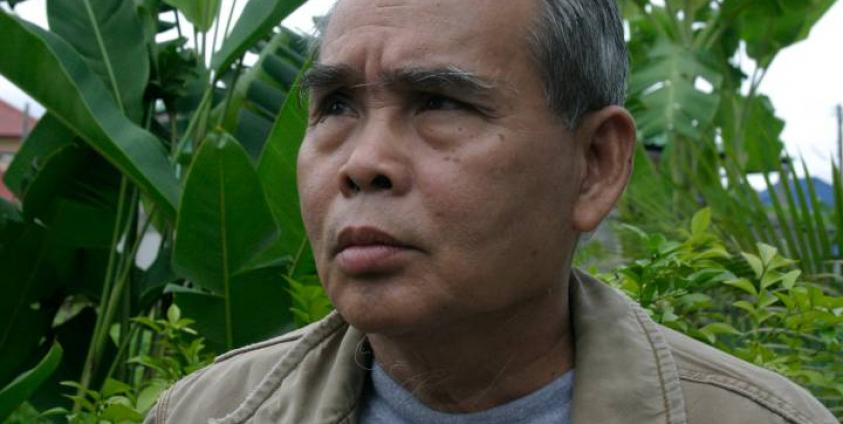Phil Thornton — Yestarday, 14th February, 2022, marks the 14th anniversary since agents of Burma’s military assassinated the influential Karen leader, Padoh Mahn Sha. It’s just over a year since the military launched its coup d’état to remove the country’s elected government. Citizens in cities, rural towns and villages took to the streets in their thousands to protest. The military responded with snipers, arrests, torture, and jail. In ethnic controlled regions, the military used airstrikes and heavy artillery bombardments on villages, displacing tens of thousands. Many of the young protestors after witnessing the brutality and terror of the military’s ground troops made the decision to take up arms and join one of the many fledgling People’s Defence Force militia’s and fight back.
Trawling through transcripts of my interviews with the late Padoh Mahn Sha, it stood out that his guidance and political intellect would be invaluable today as fighting rages between ethnic armed groups, their allies and the Burma Army and its sponsored militia’s.
In November 2006, Padoh Mahn Sha explained why the Karen National Union was unwilling to surrender.
“Our resolve is strong, morale is high and we’re united. Our revolution has international support, they don’t give us material to fight, but that has always been their way, their moral support will do. The Military regime want to finish us off but they can’t… our resolve is too strong. The Military’s targets have not changed. Inside Burma it is the NLD (National League for Democracy), the ‘88 students and in the border revolutionary areas the KNU and the ABSDF. The Military knows if they can destroy the KNU, other opposition organizations will fall over. The KNU is their main target. Their current objective is to divide us.”
Padoh Mahn Sha warned that there were ‘weak’ individuals within the Karen movement prepared to sell out the KNU’s 70 -year struggle for political equality.
“These individuals play into the hands of the military. General Bo Mya said many times that to enter the Burmese legal fold is to surrender. Yet this is what these renegades are advocating. These individuals are a disgrace to the memory of General Bo Mya and our martyrs.”
Padoh Mahn Sha pointed out Karen and ethnic unity was critically important when dealing with the military regime and those pushing for self-interest were a danger.
“Even if their intentions are naïve it’s very dangerous as it could cause a split and weaken our struggle for freedom. They’re not politically sophisticated and don’t understand politics or our struggle, all they want is to make money from running businesses.”
Padoh Mahn Sha said the late General Bo Mya was under no illusions what and who was the root cause of the country’s political turmoil.
“He [Bo Mya] said many times the military are not the [legal] government, he said how can they be… ‘they fight the people and burn their homes’. Bo Mya told me many times he wanted peace, but it has to be based on justice and dignity, not selling our people for quick profits for the benefit of a few.”
Padoh Mahn Sha had the ability to unite people and took pride in guiding and mentoring young Karen so they could maintain the Karen fight for justice for all the people of Burma.
“One thing is sure our struggle is strong as long as the Karen people support us. Our leaders are strong and committed and our young people are also. It is not only about fighting with the gun, our struggle takes many forms. We’re secure knowing our young people are becoming politically aware and getting involved, our struggle is not always with the gun. Our people and revolution is and will always focus on our four principles.”
Padoh Mahn Sha’s analyst and warning back in 2006 is just as relevant to current displacement and attacks on civilians.
“The military would like to sideline the KNU to divide our unity. It allows the military to say they know they have signatures from all the ethnic people. It lets them say ‘we’re holding engagement talks with the Karen’. The reality is, there is never any real peace talks. Take a look at what’s happened to villagers in Eastern Karen State, the Burma Army has forcibly displaced 25,000 people in 2006.”








